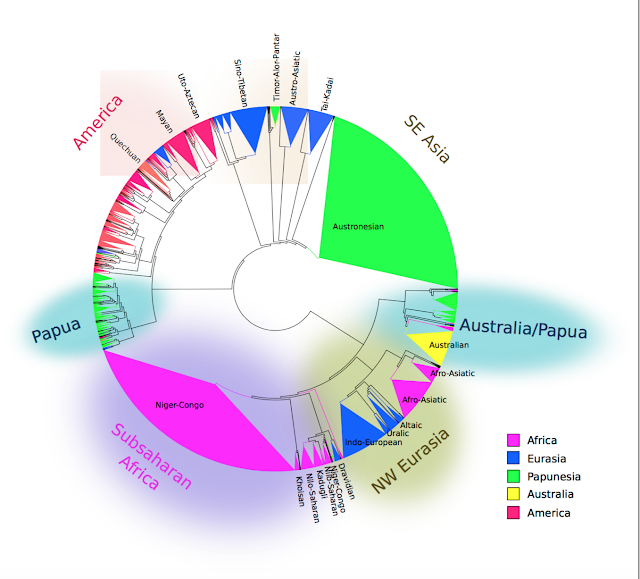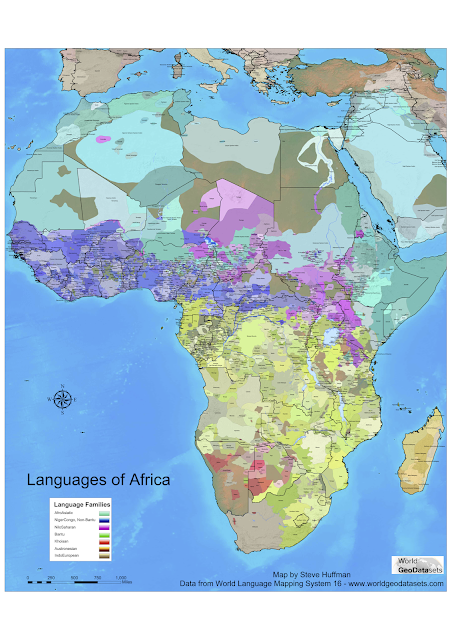Why are some languages often confused for others? FAQ wanted
 Seán Roberts, Lars Yencken and I have just published a paper on confusion of languages with data from The Great Language Game. Alongside, we also created a new game: LingQuest!
Seán Roberts, Lars Yencken and I have just published a paper on confusion of languages with data from The Great Language Game. Alongside, we also created a new game: LingQuest!The Great Language Game is quite simple, players hear a short audio clip of people speaking and then they have to guess what language it is that they heard from some given alternatives. Very often people guess correctly, in our study we found that 70% of the time people guess correctly. But, what about those other times? What's happening there? What languages are players confusing for which?
In this paper, we explore this question and test some different ideas for what it may be that is going on. The paper is getting some media coverage, and I thought we'd answer some Frequently Asked Questions (FAQ). So, please post your questions to us and we'll answer them!
 |
| Cheese pic of me listening to sounds with a Great Language Game-t-shirt that Lars sent me |
Now, let's see what questions you all have for us!



Comments
Post a Comment